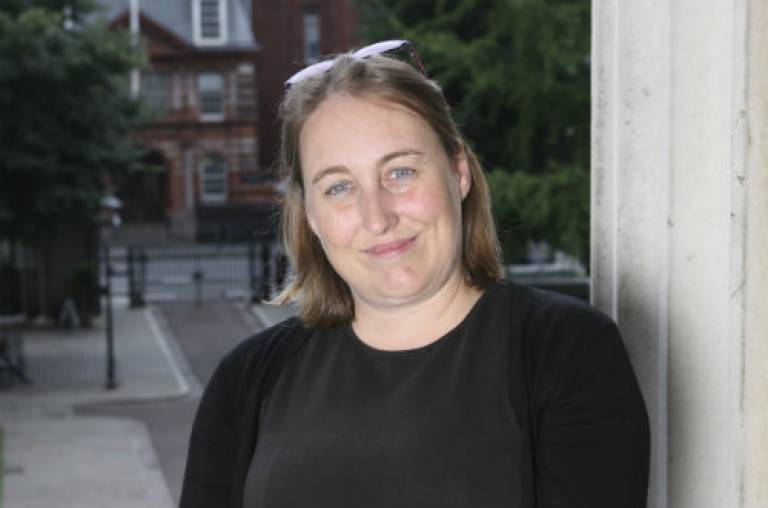Q&A with Dr Ruth Siddall
8 December 2015
Dr Ruth Siddall is UCL’s Student Mediator. She has also been UCL’s Dean of Students (Welfare) and a Senior Lecturer in UCL Earth Sciences.

What are you working on at the moment?
Autumn is always a busy term so I am working on multiple priorities however my two main commitments are teaching on the MSc in Conservation for Archaeology and Museums module ‘Conservation: Materials Science’ and as UCL’s Student Mediator, a role advising and assisting UCL students with the resolution of complaints, involving staff or other students or services of UCL which the student has been unable to resolve through informal means.
What advice would you give to someone looking to develop the way they teach?
Try different teaching styles and see what works for you – PowerPoint presentations are useful but so is hand-on learning. For example, much of my teaching lends itself to object-based learning but by thinking outside of the box this could be included in lots of different disciplines. Other techniques I’ve found useful are peer group learning and problem-based learning, but be prepared to facilitate these properly by providing ample good-quality feedback.
I also think you don’t really learn about a subject until you have to teach it so keeping up to date with the latest developments will keep the course current – and interesting.
How do you expect higher education to change in the next five years?
As ‘value for money’ becomes an increasingly important factor, it’s clear we are going to have to manage our students’ expectations. My role as student mediator role has highlighted new concerns that students have about their time at UCL.
With this in mind, learners will want their studies tailored more personally to them, especially when it comes to placements and work experience. Employability, and preparing our students for the world of work, is becoming ever more the focus: jobs in academia are in short supply and transferable skills are vital. We just have to factor students’ expectations in how they attain valuable work experience.
What piece of technology do you find invaluable in your teaching?
For me, it’s my research microscope. Students often find it helps them to get to grips with an object quicker than with a standard teaching microscope. It also gives them the chance to learn with specialist equipment used for research which is always a useful insight.
It might be quite ‘low-tech’ but my laptop, with all its photos, is a great tool for getting information, and concepts, across.
What achievement are you most proud of?
I am very proud of winning the Bronze Prize in the 2004 L'Oreal Art and Science of Color competition for ‘The Pigment Compendium Dictionary’, a comprehensive information source for scientists, art historians, conservators and forensic specialists.
It always feels good when a student comes to see me with a problem that to them seems insurmountable and I’m able to solve it for them. It doesn’t always work out so easily, but when it does it’s very rewarding.
Rebecca Allen asks: “How do you ensure that students within your department or area feel engaged in the UCL community?”
My area includes all UCL students so for me, it’s about ensuring that all students are aware of their role in the UCL community and seek to help each other when and where they can.
What question would you like to pose to the next interviewee?
What one thing would you do to make UCL a better place?
 Close
Close

